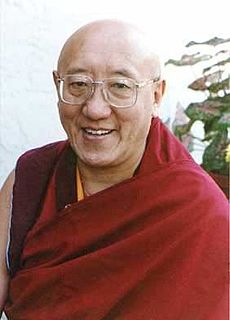A Quote by Francis Bacon
Lastly, I would address one general admonition to all: that they consider what are the true ends of knowledge, and that they seek it not either for pleasure of the mind, or for contention, or for superiority to others, or for profit, or fame, or power, or any of these inferior things: but for the benefit and use of life; and that they perfect and govern it in charity.
Related Quotes
Rejection is good. Putting others ahead of self, giving things away. Success, money, power, fame, happiness, friends; any kind of pleasure - giving it all away, in the pyramid scheme of life, with the knowledge that everything will be returned, and being satisfied with that knowledge; not with the actual return of things, but the idea of the return of things. There is death.
Civilization enables us constantly to profit from knowledge which we individually do not possess and because each individual's use of his particular knowledge may serve to assist others unknown to him in achieving their ends that men as members of civilized society can pursue their individual ends so much more successfully than they could alone.
Knowledge is power." Rather, knowledge is happiness, because to have knowledge - broad, deep knowledge - is to know true ends from false, and lofty things from low. To know the thoughts and deeds that have marked man's progress is to feel the great heart-throbs of humanity through the centuries; and if one does not feel in these pulsations a heavenward striving, one must indeed be deaf to the harmonies of life.
Some men covet knowledge out of a natural curiosity and inquisitive temper; some to entertain the mind with variety and delight; some for ornament and reputation; some for victory and contention; many for lucre and a livelihood; and but few for employing the Divine gift of reason to the use and benefit of mankind.
We have no knowledge, that is, no general principles drawn from the contemplation of particular facts, but what has been built up by pleasure, and exists in us by pleasure alone. The Man of Science, the Chemist and Mathematician, whatever difficulties and disgusts they may have had to struggle with, know and feel this. However painful may be the objects with which the Anatomist's knowledge is connected, he feels that his knowledge is pleasure; and where he has no pleasure he has no knowledge.
Music [is] a science peculiarly productive of a pleasure that no state of life, publick or private, secular or sacred; no difference of age or season; no temper of mind or condition of health exempt from present anguish; nor, lastly, distinction of quality, renders either improper, untimely, or unentertaining.
Be sure the safest rule is that we should not dare to live in any scene in which we dare not die. But, once realise what the true object is in life ? that it is not pleasure, not knowledge, not even fame itself, 'that last infirmity of noble minds' ? but that it is the development of character, the rising to a higher, nobler, purer standard, the building-up of the perfect Man ? and then, so long as we feel that this is going on, and will (we trust) go on for evermore, death has for us no terror; it is not a shadow, but a light; not an end, but a beginning!
Man doth seek a triple perfection: first a sensual, consisting in those things which very life itself requireth either as necessary supplements, or as beauties and ornaments thereof; then an intellectual, consisting in those things which none underneath man is either capable of or acquainted with; lastly a spiritual and divine, consisting in those things whereunto we tend by supernatural means here, but cannot here attain unto them.








































